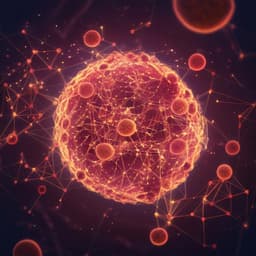
Computer Science
Scaffolding cooperation in human groups with deep reinforcement learning
K. R. Mckee, A. Tacchetti, et al.
This groundbreaking research conducted by Kevin R. McKee, Andrea Tacchetti, Michiel A. Bakker, Jan Balaguer, Lucy Campbell-Gillingham, Richard Everett, and Matthew Botvinick uses deep reinforcement learning to boost cooperation in human groups, achieving a whopping 77.7% cooperation rate. Discover how a 'social planner' AI can transform cooperation dynamics in network games!
Related Publications
Explore these studies to deepen your understanding of the subject.







